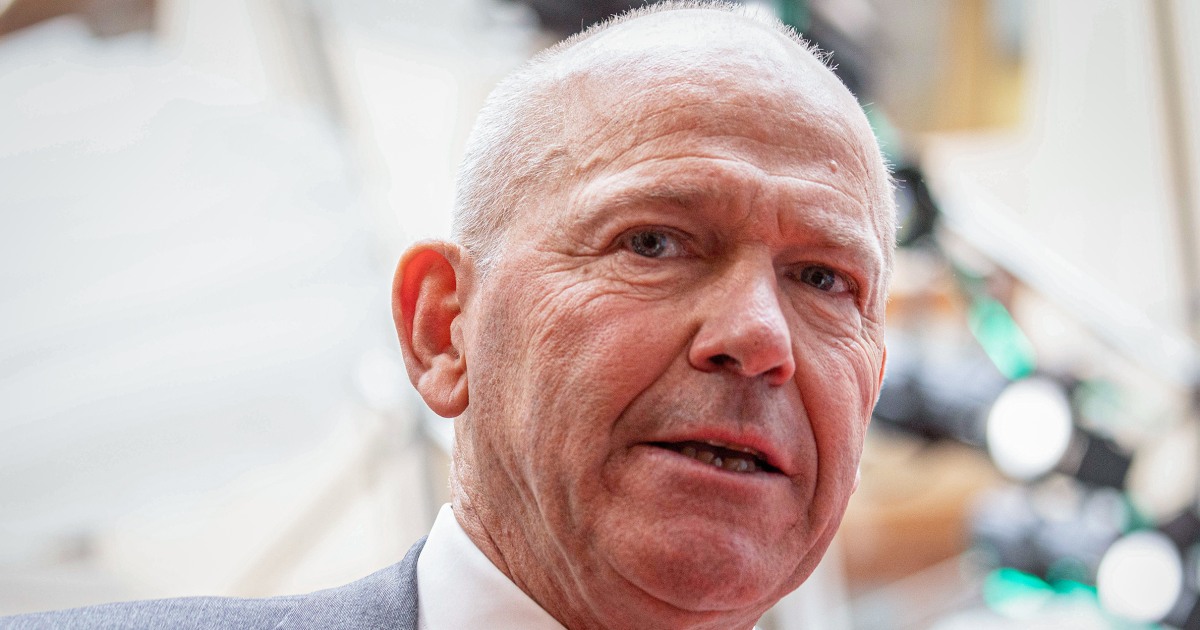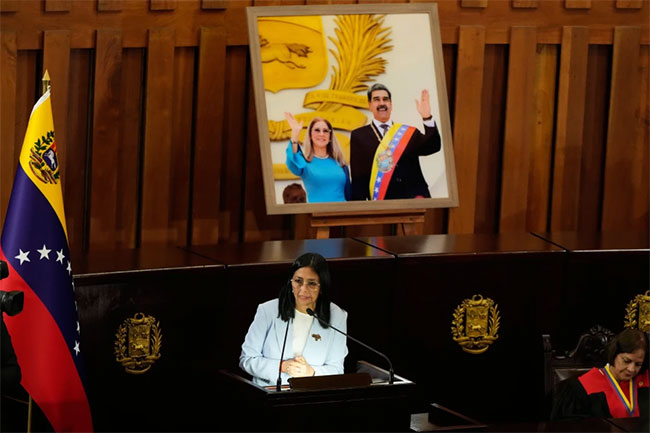The Summary
- Outgoing Boeing CEO Dave Calhoun was expected to reassure lawmakers Tuesday that the company is committed to safety.
- The hearing was called in the wake of a January incident in which a door panel blew out midflight — leading to a series of additional troubling revelations about Boeing’s safety practices.
- Boeing has submitted a “road map” to the FAA to address what the agency called “systemic” safety and quality control issues.
Boeing CEO David Calhoun is facing congressional lawmakers on Capitol Hill on Tuesday in a new hearing focused on safety practices at the company.
The hearing, called by the Senate Permanent Subcommittee on Investigations, was prompted by the January blowout of a door panel on an Alaska Airlines flight and subsequent revelations about Boeing and its safety practices in the wake of the incident.
“This past January, the facade quite literally blew off the hollow shell that had been Boeing’s promises to the world,” Sen. Richard Blumenthal, D-Conn., said in prepared remarks. “And once that chasm was exposed, we learned that there was virtually no bottom to the void that lay below.”
Calhoun, who in March announced his plan to step down as CEO by the end of this year, first came to Boeing as a director in 2009. He became lead independent director in 2018, and took over the top leadership role in 2020 in the wake of two Boeing 737 Max disasters that killed 346 people when the planes crashed in Ethiopia and in the Java Sea in the span of five months.
Boeing’s safety culture was expected to be overhauled after the crashes, which cost Calhoun’s predecessor, Dennis Muilenburg, his job.
Critics say that did not seem to happen. In a March interview with NBC News, FAA Administrator Michael Whitaker said Boeing’s priorities “have been on production and not on safety and quality.”
“They need to make safe airplanes or they will be capped at a production level that’s not sustainable,” he said. “So I’m confident that they’ll get there.”
Others have said that Calhoun continued a decadeslong company trend of improperly balancing financial decisions with ones about safety — allegations Boeing consistently denies.
In a letter to clients in November 2023 — two months before the January blowout incident — Richard Aboulafia, managing director at AeroDynamic Advisory and a leading aerospace analyst, accused Calhoun of perpetuating “a dysfunctional culture” at Boeing.
“What’s Calhoun’s rationale for abolishing the company-wide strategy department? Cost-cutting is an obvious explanation,” Aboulafia wrote. “Per my December 2019 letter, the longer Calhoun stayed the longer it would become clear that shareholder returns was his sole focus. At the four-year mark, that is all too dismally obvious.”
In his opening remarks, Blumenthal highlighted those shortcomings.
“Mr. Calhoun, you were brought in to turn this company around,” the senator said. “But instead of asking what has caused Boeing’s safety culture to erode, you and your colleagues in the C-suite have deflected blame, looked the other way, and catered to your shareholders instead. Boeing needs to stop thinking about the next earnings call and start thinking about the next generation.”
Boeing remains the subject of inquiries by the Justice Department and the Federal Aviation Administration.
Last month, the Justice Department said Boeing had violated a 2021 settlement struck in the wake of the deadly 737 Max incidents by failing to implement a required compliance and ethics program — though it did not reveal what specific violations had occurred.
Boeing has disputed the Justice Department’s finding. The department is now weighing whether to pursue charges against the company, though it is rare for settlements to be reversed.
In addition to its renewed efforts to increase scrutiny of Boeing, the FAA, which continues to monitor the company’s Max airplane production, is also looking inward. Last week, Whitaker testified that the agency’s approach to the company had been “too hands off,” relying on paper audits instead of inspections.
“We will utilize the full extent of our enforcement authority to ensure Boeing is held accountable for any noncompliance,” he said. “We currently have multiple active investigations into Boeing and are processing a number of reports filed by whistle-blowers.”
In the hours leading up to Calhoun’s appearance on Capitol Hill on Tuesday, the subcommittee released new whistleblower claims from a Boeing quality assurance investigator who accused the company of retaliating against him for flagging that Boeing was likely installing damaged or improper parts on planes and hiding the parts from FAA inspectors.
A Boeing spokeswoman said the company received the claims Monday night and that its staff was reviewing them.
Boeing shares have fallen 30% year to date.













